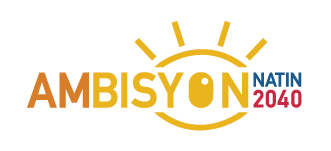Antonio L. Colina IV (Manila Bulletin)
Davao City – Finance secretary Carlos G. Dominguez III and Chinese Vice Minister Fu Ziying, who is also China’s International Trade Representative recently forged an agreement for the conduct of preliminary feasibility studies for the proposed P24.5-billion Davao City Expressway and the Panay-Guimaras-Negros Island Bridges Project that will help decongest the city’s downtown areas.
Davao City Investment Promotions Center (DCIPC) head Ivan Cortez said the 23.3-km expressway project will be constructed above ground and will be implemented in three phases.
The first phase will cover Carlos P. Garcia National Highway, Maa, Talomo, and Sta. Ana Wharf; the second phase will include Carlos P. Garcia National Highway, Maa, Talomo, Panacan; and the third phase will be from Carlos P. Garcia National Highway, Maa, Talomo, Bangkal.
He said the objective of this latest infrastructure project is to improve and decongest traffic within Davao City by connecting its port to the outer part of the city.
He added it will also “complement on-going, committed, and proposed projects for further enhancement and improvement of access that will encourage an increase in economic activities and productivity along its influence areas.”
“It will shorten the travel time of people, if their usual travel route plan is between north and south of the city,” he said.
National Economic and Development Authority (NEDA) director general Ernesto Pernia and Fu Ziying signed the six-year development program that aims to “steer and promote stable and orderly development of economic cooperation, enlarge the scope and enhance the level of cooperation, and drive sustainable and inclusive socio-economic development in both countries.’
Vice Minister Fu and Chinese Vice Premier Wang Yang were in Davao City for a four-day visit and met with some of the cabinet officials of President Rodrigo R. Duterte on Friday, among them, Finance secretary Carlos Dominguez III, Budget secretary Benjamin Diokno, Transportation Secretary Arthur Tugade, and Pernia.
In that meeting, the officials from China and the country’s economics managers discussed the recent economic developments in the country, particularly the Philippine Development Plan (PDP) 2017 to 2022, and updates on bilateral cooperation in areas of infrastructure, trade, investments, agriculture, fishery, tourism, and financing cooperation between Philippines and China.
Also, China gave the Philippines $91 million worth of grants, which includes a $1-million donation for the earthquake-hit province of Surigao; a $75-million grant for the construction of the Binondo-Intramuros and the Estrella-Pantaleon bridges across the Pasig River; and the on-going $15-million financing provided under the anti-illegal drugs and law enforcement security cooperation agreement signed last year between the two countries during the state visit of President Rodrigo R. Duterte in China in October, 2016.
